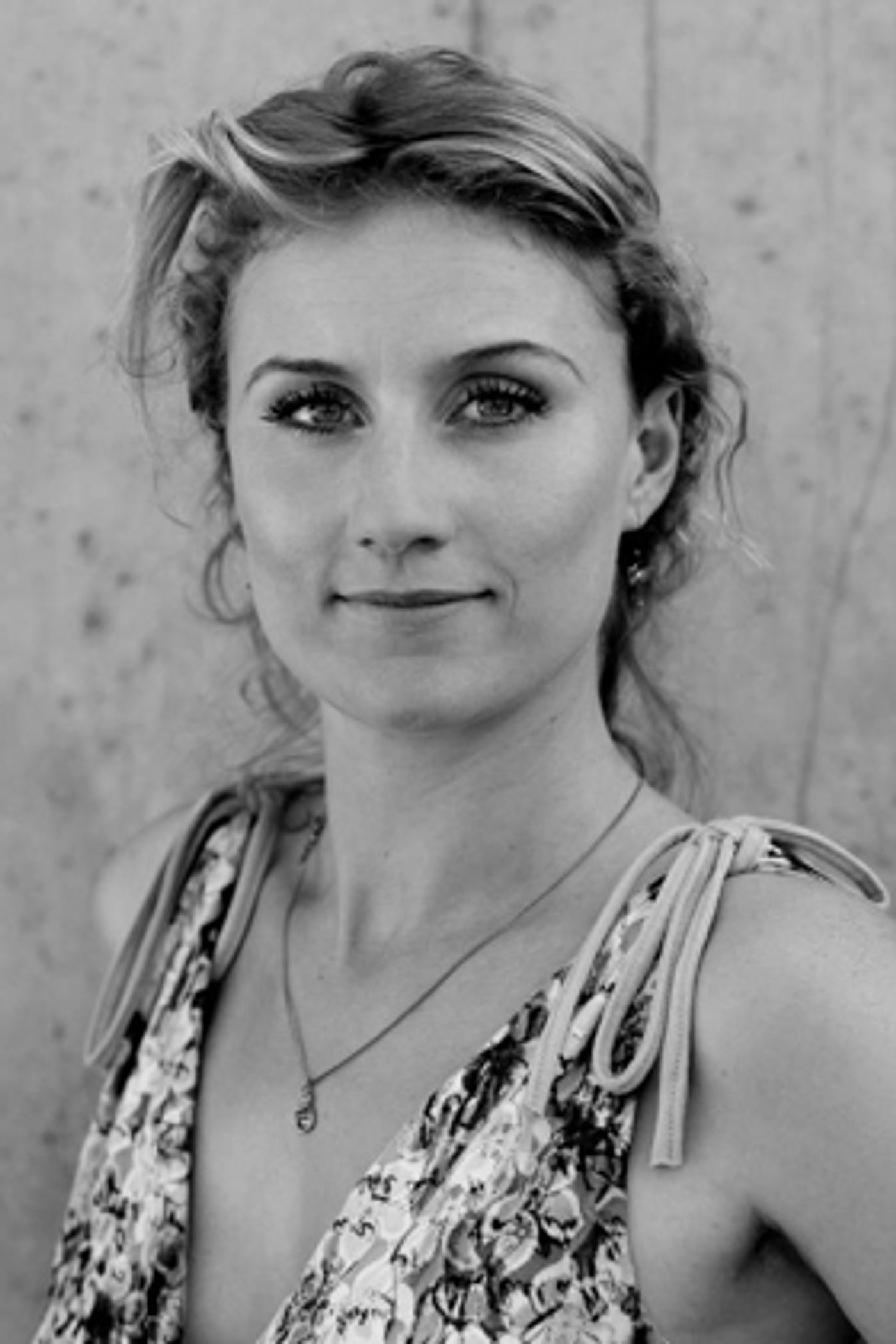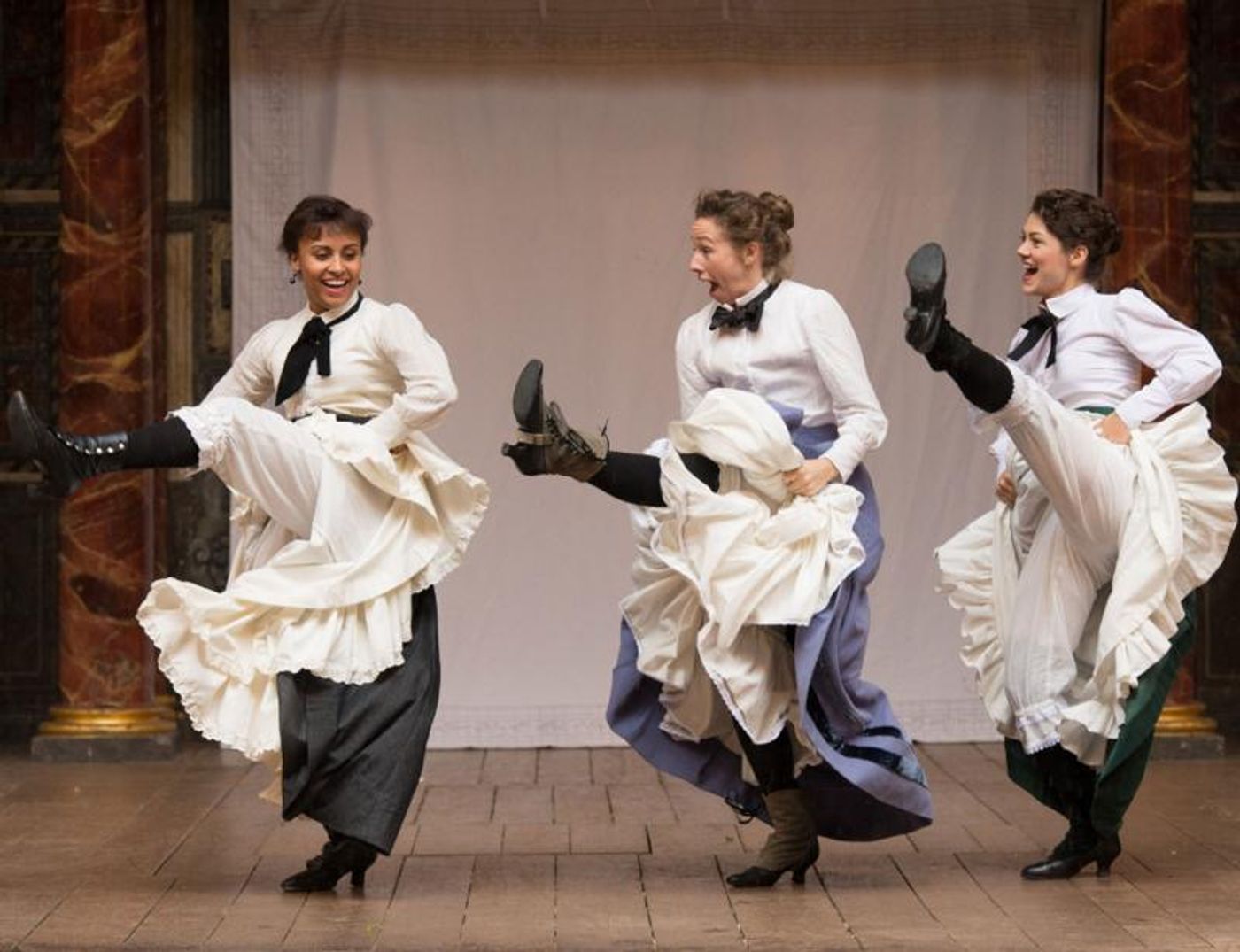Interview: Jessica Swale On Getting Into Writing & Theatre

Jessica Swale is a director, screenwriter and Olivier Award-winning playwright. Her most recent stage adaptation The Jungle Book is currently touring, and she is working on no less than six separate screen projects. To say she's busy is an understatement. But, in her own words: "I wanted to do everything!"
In the first of our two-part interview, Jessica looks back on her career so far and when her love of theatre began.
Has theatre always been a big part of your life?
Stories have always been a part of my life. My mum is an English teacher and always encouraged us to read. And I loved dressing up; we'd make jellyfish costumes out of bubble wrap, and my grandma (who was an artist) would get us to invent and illustrate bedtime stories. So make-believe was part of the fabric of growing up in our house.
We were lucky, I think; there were so many books in our house we used to joke that if you took out the bookcases, the ceiling would fall down. So that's how we entertained ourselves. There wasn't much TV, we played outside in the mud or indoors in the dressing-up box. Although at the time I used to be embarrassed going to school not having seen the latest episode of Neighbours, I'm grateful now that we were encouraged to make our own fun. It turns out you can make a career out of it.
In terms of theatre, we lived in Reading so our diet was somewhat restricted to local theatre and bad school plays (my Mum taught at a boys' school, so I'd often be found watching all-male Pirates of Penzance and other dodgy productions).
But she always made the effort to take us to everything we could afford and whatever was on. And I thought it was magic. Everything about it, whatever it was. By the time I went to secondary school that was it. I was smitten.
When did you realise that this is what you wanted to go into?
I'd always been enamoured with the idea of being an actor; I had no idea what that meant, it just seemed so exciting.
But the moment when that crystalised into a genuine ambition was at secondary school, when our music teacher elected not to teach us for a term, and instead tasked us with writing a musical from scratch. We had to do everything, from writing to directing to building the set and playing the roles.
We had no idea what we were doing. It was a mountainous task, but something happened during that process... I wasn't one of the most confident students, but I somehow found my feet - and a voice.
I was originally cast in a bit part, and by the time we'd finished I'd written a play within the play, given myself the lead role in it (which seems outrageous looking back!). I even wrote myself a song! What was I thinking?
But it genuinely changed everything for me. After that, I was directing the school plays, writing the Christmas pantomime and at dance classes every night. There was no going back.

And how did you then channel that passion into a career?
I wanted to be an actor at first, so I went to Exeter to study Drama. At the time, I found the course really challenging, because it was so heavily devising-based and I was desperate to do "proper plays".
Text was pretty much banned in the first year, and the English teacher's daughter in me didn't know what to do with that. In hindsight though, I'm so glad that that was the case, because we were encouraged to be creative and to initiate ideas, which is now at the core of what I do as a writer and a director.
Then in my final year, I got a job as assistant director on a production at the Northcott Theatre. That's when I realised I wanted to direct. Mainly because I wanted to do everything. As far as I could see, while the actors came in and did their scenes, the director got to be involved from the off, from months before the actors even auditioned.
I loved being in the room when the director was meeting the designer (it was the first time I'd seen a model box and I thought it was the coolest thing), talking to the composer, and putting together the world of the play. That's when I realised what it was I wanted to do.
So I went to the Central School of Speech and Drama after that and studied Directing. I then ran my own theatre company for about eight years [Red Handed Theatre Company], whilst simultaneously working as Max Stafford-Clark's Associate Director at Out of Joint.
So I was a small fish and a big fish at the same time. And everything I learnt from working for Max I was able to apply when running my company; a steep but exhilarating learning curve. And then I accidentally wrote a play, Blue Stockings, which went to the Globe and that was that.

How do you accidentally write a play?!
Well, I had never considered being a writer. Firstly, I didn't like the idea of sitting in a room on my own and secondly, I didn't think I had anything to say. It takes a tremendous amount of self-confidence - and a bit of wilful arrogance - to believe that your thoughts are valuable enough to ask people you've never met to pay to sit and listen to your words for a night.
And to be honest, I hadn't seen many examples of women doing it, so perhaps innately I wasn't sure I had the right to. I thought I would only write a play if there was a compelling reason, if there was a story I really believed ought to be told.
Then, while I was working at Out of Joint on a production called Andersen's English, I was doing some research about the prospects of Victorian women. I read that girls hadn't been allowed to go to university, and realised I didn't know when that changed or how.
So I began reading about those first female students, and I couldn't believe the backlash they faced and the absolute mountain they had to climb to win the right to graduate. And I was writing at a time when tuition fees were being debated and Malala had just been shot, so it felt vital to talk about it - to put the right to education on the agenda.
So I wrote Blue Stockings. It took quite a leap of faith to put pen to paper, because I'd worked in new writing for a good while, giving writers script notes. I was really nervous of picking up the mantle myself - it's a bit like the drama teacher who stands up and performs and you realise they're a terrible actor... I was nervous about that.
But sometimes you just need to think, "Fuck it, what's the worst that can happen? What have I got to lose?" And it was probably the single best decision I ever made.
And Blue Stockings is now on the Drama syllabus, meaning your own passion from an early age is now being passed on to more young people.
Yes. It is just so lovely, especially because it's about the value of education and it's being taught in schools. And whilst it's great when the show gets done by professionals, the fact that it's performed so often by teenagers means so much more to me.
Because it's their story, it's about young people. And I don't think there are enough plays about young people, and I don't think there are enough plays about women. So I'm really proud that people do it for their GCSEs now.
.jpg?format=auto&width=1400)
And in addition to Blue Stockings, you've developed a number of shows over the years with Shakespeare's Globe, notably the Olivier-winning Nell Gwynn.
Yes, and I have always loved working there. The politics of the building are something that I believe in so fundamentally - that you can see some of the world's best actors for a fiver. It really is for everyone.
In Shakespeare's day, you paid a penny to stand in the Yard and the Globe's five pound ticket policy for groundlings is a reflection of that, in terms of being roughly the same percentage of a Londoner's wages. I don't know how exact that is, but the principle is important.
I do believe theatre should be accessible to all. And I want to make work that reflects that - I've never been interested in being exclusive - I want make work that plays to friends, grandparents, young people. It makes me so sad when you see entirely middle-aged, middle-class white audiences (I say, knowing full well that I fit two and nearly three of those categories...maybe it's time to move over!).
And I'm so glad that I directed at the Globe before I wrote for the space too. I didn't specifically write Blue Stockings for the Globe; I had to adapt it when they said they wanted to do it.
With Nell Gwynn, however, I wrote that entirely with the Globe in mind. They didn't know it - but it was lovely to be able to walk in with a script and say, "Hey, I've written a play and I wrote it for you, so please do it!".
One of the joys for a writer is being able to respond to a particular space, and the joy of the Globe is the presence of the audience as a very real part of the performative conversation - it makes it a truly democratic space. And I love that.
The Jungle Book on tour until 12 May
Photo credit: Justin Sutcliffe, Tristram Kenton, Manuel Harlan
Videos

